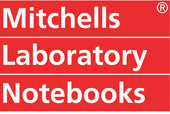When maintaining a laboratory notebook, the type of pen you use is as crucial as the data you record. The right pen can make a significant difference in the clarity, longevity and reliability of your notes. In this article we will explore the question: "What kind of pen do I use in a laboratory notebook?" and provide a guide to help you make an informed choice.
Why pen choice matters in laboratory notebooks
A laboratory notebook is a critical tool in any scientific research. It is not just a repository for data, but a legal document that can be used in patent filings, publications and verifying research findings. Hence what kind of pen you use in a laboratory notebook is not merely about considering the nature of your work and personal comfort and preference, but also ensuring that your work is accurately and permanently recorded.
Characteristics of the ideal pen for laboratory notebooks
Permanent ink: the ink should be waterproof and fade-resistant to ensure your notes remain legible for years. This is essential for audits, repeat experiments or referencing past research.
Smudge-proof: quick-drying ink is a must to prevent smudging, especially for left-handed scientists who might drag their hand across the page.
Fine tip for precision: a fine tip allows for precise writing which is necessary when noting complex data or drawing detailed diagrams.
Comfort and ergonomics: comfort is key during periods of data entry; ergonomically designed pens can reduce hand fatigue.
Recommended pen types for laboratory notebooks
Gel / roller ball pens: known for their smooth fluid writing, they are a popular choice however be mindful of smudging and drying time.
Ballpoint pens: these are a reliable pen and less prone to smudging. They use oil-based ink which tends to be more permanent.
Whilst we don’t recommend a specific brand of pen for your laboratory notebook, consider the nature of your work and personal comfort. There are lots of gel, roller ball and ballpoint pens on the market, and many stationers will have sample pens for you to try in their shops.
Pen types to avoid:
Erasable pens: they may seem convenient but their ink is not durable or archival.
Highlighters and markers: these can bleed through pages and are unsuitable for writing text.
Choosing the right laboratory notebook
While focusing on what kind of pen to use in a laboratory notebook, don't forget the importance of the laboratory notebook itself. Opt for notebooks with acid-free paper, which pair well with high-quality pens, ensuring your notes stand the test of time.
Our notebooks use paper that is acid-free and eco-friendly, made from uncoated cartridge 100gsm paper. It's certified by the FSC® (Forest Stewardship Council) and is ECF (Elemental Chlorine-Free), ensuring top-notch printing quality and high opacity to prevent bleed-through. The paper suppliers we work with hold the EU Ecolabel, recognising their commitment to environmental excellence. They also meet the standards of ISO 9706 for long-lasting paper, ISO 14001 for effective environmental management, and ISO 9001 for consistent quality assurance.
Conclusion
In conclusion, the answer to "What kind of pen do I use in a laboratory notebook?" depends on your specific needs and preferences. However prioritising permanence, precision, and comfort is key. Remember, the right pen can significantly enhance the quality and integrity of your lab records.
Are you looking for high-quality laboratory notebooks that complement the perfect pen? Contact Mitchells Laboratory Notebooks to explore our range of laboratory notebooks designed for durability, clarity, and precision in scientific research.

